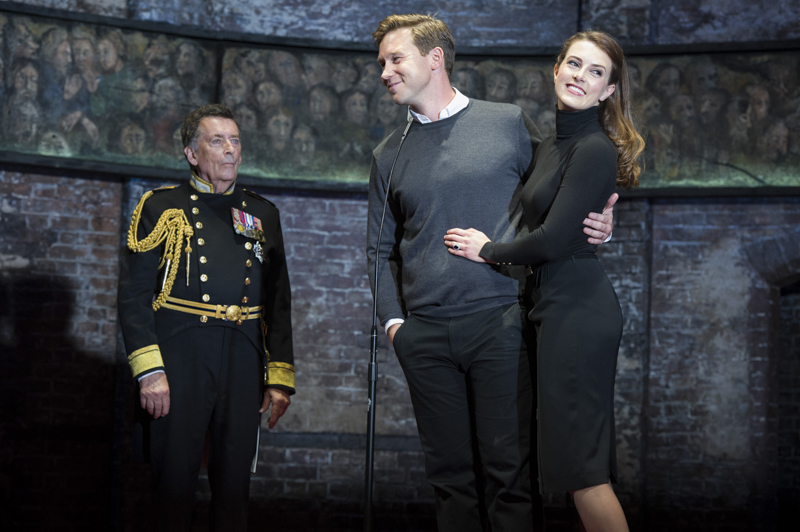 The Queen is dead: after a lifetime of waiting, Prince Charles ascends the throne – a future of power. But how to rule? Should a monarch’s power be merely ceremonial, or should they use the power bestowed upon them by their birth to act on matters of conscience?
The Queen is dead: after a lifetime of waiting, Prince Charles ascends the throne – a future of power. But how to rule? Should a monarch’s power be merely ceremonial, or should they use the power bestowed upon them by their birth to act on matters of conscience?
Mike Barlett’s writing is royally entertaining – if you’ll excuse the pun. He moulds Charles into a Shakespearean tragic hero, with the speculative situation gaining momentum and getting out of hand. Complete with quasi-Shakespearean verse, direct address and scenes reminiscent of the ones Shakespeare himself penned, the style of writing is ideally suited to the subject matter. There are hints to Macbeth with the ambitious Lady Macbeth-esque Kate, of Hamlet with Diana’s ghost appearing, and a threat of usurpation, a theme of Richard II – Bartlett wealds his magic quill.
The play does ask an interesting question about the role of the modern British monarchy and what, if any, its influence over politics should be. Rupert Goold’s direction certainly challenges the complexity of such matters; he lets us see the effect of being born into royalty and heirdom, with all the expectation it brings, close up.
Robert Powell gives a commanding performance as Charles. A maverick role handled with great nuance, Powell lets us see the man behind the prince – his handling of the transition to a jaded and deject monarch is well crafted. The scheming William and Kate, played by Ben Righton and Jennifer Bryden respectively, bring a real air of the younger generation of royals affected by increasing media attention – evident in their decision making. Richard Glaves, as Harry, offering the main comedy of the evening, is suitably sensitive and tender when required as he is challenged by a luminous Lucy Phelps in the role of Jess.
The politicians of the piece set the mood most effectively. Mr Evans, the fictional Labour Prime minister, played by Tim Treloar, has all the grit and stubbornness of a traditional northern politician. Mr Stephens, leader of the Conservative Party, played by Giles Taylor, is an archetypal public school boy and slimy tongued salesman figure (bearing much likeness in mannerism to current Tory leader, David Cameron)
A notable mention must be given to composer Jocelyn Pook, whose music is evocative and key in setting the scene. Matching the occasion at all times, the music subsequently has both turbulence and grandeur about it.
King Charles III may well be a piece of its time and will eventually become obsolete, but it is a witty piece of work with great presence. It dares to do much by looking into the prospective future of the world’s most famous family. A unique play with a bold vision, it is refreshing to see such themes explored in modern theatre.
Fantastical? Yes – but once you’ve jumped the hurdle of unlikely events, it makes for fascinating and compelling theatre. ★★★★★ Sam Chipman at Birmingham Rep 9/09/15
Click here to read our interview with Robert Powell
Photo by Richard Hubert Smith

